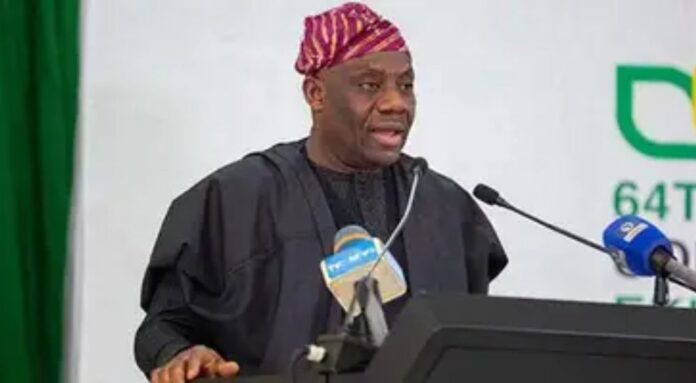The Federal Government has launched the National Policy on Non-State Schools in Nigeria.
Speaking at the launch, the Minister of Education, Dr Tunji Alausa said that the policy is a crucial step towards realising the National Education Sector Reformation Initiative (NESRI).
According to him, the National Education Sector Renewal Initiative, NESRI, provides a framework for reforming the education sector, the President’s Renewed Hope Agenda and the NESRI initiative, which prioritises the education sector.
In the area of education reform, the Minister said Non-state policy will help
implementing reforms to improve access, quality, and accountability in the education sector.
Emphasising on its innovative Solutions, Alausa said the policy will help in leveraging technology, public-private partnerships, and innovative approaches to drive education development.
Also, speaking on inclusive Education, the Minister stressed that non-states national policy will promote inclusivity and equity in education, ensuring that every child has access to quality education regardless of their background or location.
“This policy on non-state schools is a key component of that initiative. By harnessing the potential of non-state schools, we can increase access to quality education, improve learning outcomes, and promote economic growth.
The policy, according to him, outlines clear guidelines for non-state schools, including standards for infrastructure, teacher quality, and curriculum delivery.
It also provides a framework for collaboration between non-state schools and the government, ensuring that, “We can work together to achieve our education goals.”
He highlighted some key areas of focus for this policy to include: Quality Assurance: Ensuring that non-state schools meet minimum standards for infrastructure, teacher quality, and curriculum delivery; Accountability: Holding non-state schools accountable for their performance and ensuring that they are transparent in their operations; Equity and Inclusion: Promoting inclusivity and equity in non-state schools, ensuring that every child has access to quality education regardless of their background or location.
While urging the stakeholders to support the implementation of the policy and work towards creating a future where every Nigerian has access to quality education, Alausa expressed hope that strengthened collaboration would ensure that Nigerian education sector is equipped to drive national development and provide opportunities for all Nigerians.

